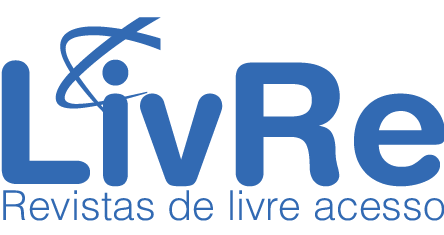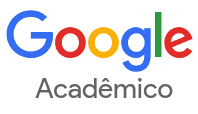O saber geográfico e a construção de conhecimento a partir da realidade dos estudantes
reflexões sobre a proposta do Trabalho Colaborativo Autoral no município de São Paulo
DOI:
https://doi.org/10.46789/edugeo.v13i23.1332Palavras-chave:
Conhecimento escolar, Currículo, Saber geográfico, Prática pedagógicaResumo
A proposta de Trabalho Colaborativo Autoral (TCA) surgiu em 2013, na prefeitura municipal de São Paulo. Ela se fundamenta em uma prática dialógica (FREIRE, 2001) e interdisciplinar de construção de conhecimentos a partir da experiência e da realidade do estudante. O objetivo do texto é compreender a relevância do TCA, realizado nas unidades da SME-SP, como uma prática pedagógica e política séria, na produção de conhecimentos significativos, sendo relevante diante das atuais imposições curriculares das políticas neoliberais (APPLE, 2006; ARROYO, 2013). Para isso, refletiu-se sobre a relevância do saber geográfico e do método de trabalho de campo sobre essa prática. E, por fim, compreende-se que o TCA pode ser uma prática que possibilite a construção de conhecimentos mais reflexivos, críticos e criativos sobre a realidade do estudante, além de possibilitar que ele se compreenda enquanto sujeito histórico.
Palavras-chave
Conhecimento escolar, Currículo, Saber geográfico, Prática pedagógica.
Geographic knowledge and the construction of knowledge from the reality of students:reflections on the proposal of Collaborative Authorial Work in the city of São Paulo
Abstract
The proposal for Trabalho Colaborativo Autoral (TCA) emerged in 2013, at the municipal government of São Paulo. It is based on a dialogic (FREIRE, 2001) and interdisciplinary practice of building knowledge from the student's experience and reality. The objective of the text is to understand the relevance of the ACT, carried out in the SME-SP units, as a serious pedagogical and political practice, in the production of significant knowledge, being relevant in the face of the current curricular impositions of neoliberal policies (APPLE, 2006; ARROYO, 2013). For this, it reflected on the relevance of geographic knowledge and the fieldwork method on this practice. And finally, it is understood that the ACT can be a practice that enables the construction of more reflective, critical and creative knowledge about the student's reality, in addition to enabling him to understand himself as a historical subject.
Keywords
School knowledge, Curriculum, Geographic knowledge, Pedagogical practice.
Downloads
Referências
ALMEIDA, Cecília Cardoso Teixeira de; MARTINS, Elvio Rodrigues; SILVA, Jorge Luiz Barcellos da. A ciência geográfica e o ensino de Geografia dos anos 1980 aos dias de hoje: uma avaliação. Revista Brasileira de Educação em Geografia, Campinas, v. 9, n. 18, p. 05-19, jul./dez., 2019. Disponível em: https://www.revistaedugeo.com.br/revistaedugeo/article/view/747. Acesso em 2 de novembro de 2023.
APPLE, M. W. Ideologia e Currículo. 3 ª ed. Porto Alegre: Artmed. p. 287, 2006.
ARROYO, Miguel Gonzalez. Currículo, território em disputa. 5ª ed. Petrópolis: Vozes, 2013.
CAVALCANTI, Lana de Souza. Geografia, escola e construção de conhecimentos. 15ª ed. São Paulo: Contexto. p. 192, 2010.
FREIRE, Paulo. A Educação na Cidade. 5 ª ed. São Paulo: Cortez, 2001.
PONTUSCHKA, Nídia; PAGANELLI, Tomoko Yida; CACETE, Núria Hanglei. Para Ensinar e Aprender Geografia. São Paulo: Cortez, 2007.
SÃO PAULO (PMSP). Secretaria Municipal de Educação. Programa Mais Educação São Paulo: subsídios para a implantação. São Paulo: SME/DOT, 2014a.
SÃO PAULO (PMSP). Secretaria Municipal de Educação. Diretoria de Orientação Técnica. Plano de navegação do autor: caderno do professor. Secretaria Municipal de Educação: São Paulo, 2014b.
Downloads
Publicado
Como Citar
Edição
Seção
Licença
Proposta de Aviso de Direito Autoral Creative Commons
1. Declaro que o presente artigo é original, não tendo sido submetido à publicação em qualquer outro periódico nacional ou internacional, quer seja em parte ou em sua totalidade. Declaro, ainda, que uma vez publicado na Revista Brasileira de Educação em Geografia, o mesmo jamais será submetido por mim ou por qualquer um dos demais co-autores a qualquer outro periódico. E declaro estar ciente de que a não observância deste compromisso submeterá o infrator a sanções e penas previstas na Lei de Proteção de Direitos Autorias (Nº9609, de 19/02/98)
2. A Revista Brasileira de Educação em Geografia tambem segue a "Proposta de Política para Periódicos de Acesso Livre".
Autores que publicam nesta revista concordam com os seguintes termos:
- Autores mantém os direitos autorais e concedem à revista o direito de primeira publicação, com o trabalho simultaneamente licenciado sob a Licença Creative Commons Attribution que permite o compartilhamento do trabalho com reconhecimento da autoria e publicação inicial nesta revista.
- Autores têm autorização para assumir contratos adicionais separadamente, para distribuição não-exclusiva da versão do trabalho publicada nesta revista (ex.: publicar em repositório institucional ou como capítulo de livro), com reconhecimento de autoria e publicação inicial nesta revista.
- Autores têm permissão e são estimulados a publicar e distribuir seu trabalho online (ex.: em repositórios institucionais ou na sua página pessoal) a qualquer ponto antes ou durante o processo editorial, já que isso pode gerar alterações produtivas, bem como aumentar o impacto e a citação do trabalho publicado (Veja O Efeito do Acesso Livre).







